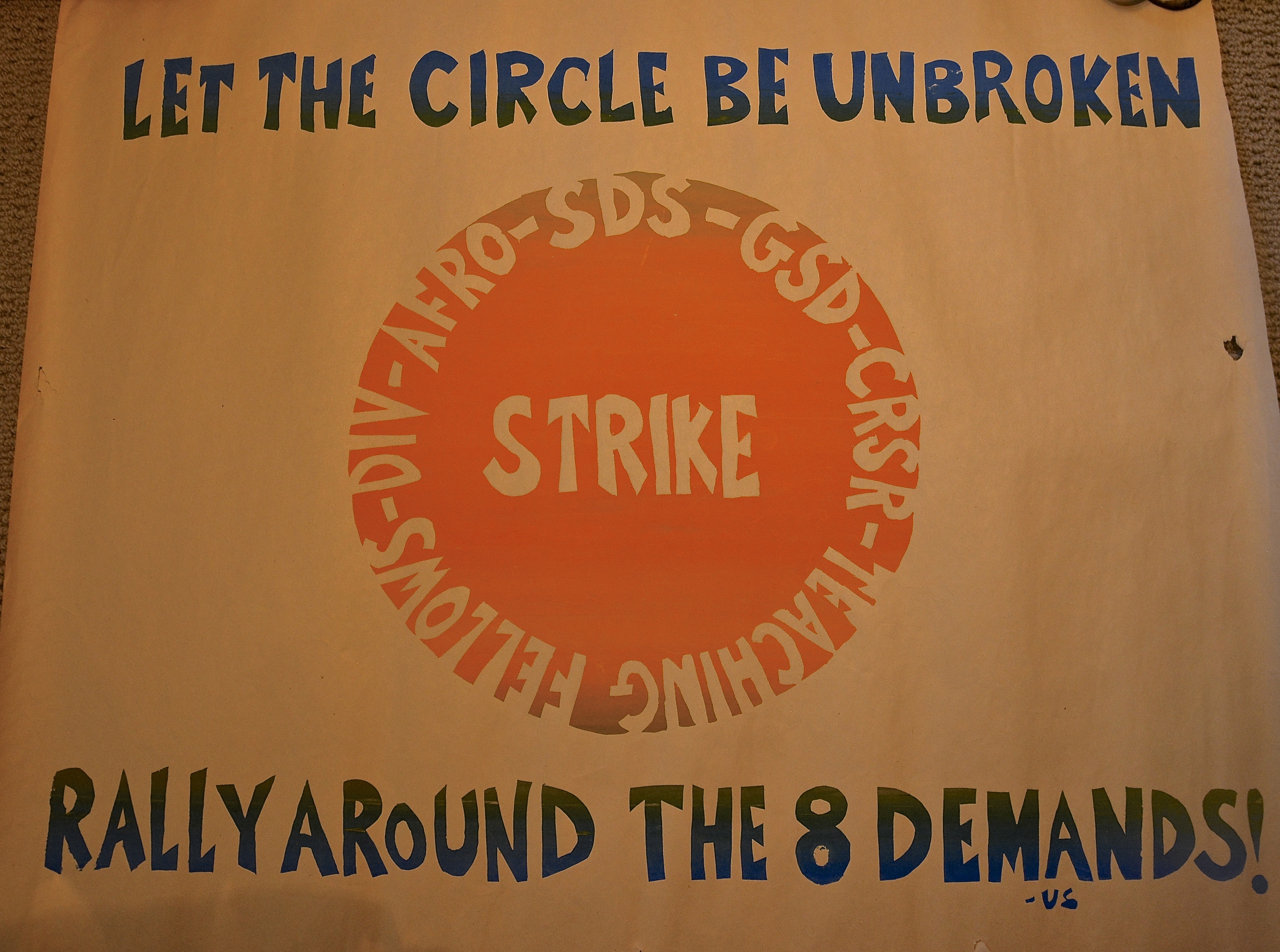
1969 Student Strike @ Harvard
The first day of THAT NIGHT in Cambridge, MA (April 4, 1968) began quite innocently. In the spring of my senior year in high school, I was invited to visit Brown and Harvard. As the All-Los Angeles City Player of the Year and recipient of a National Football Foundation Hall of Fame Scholar Athlete Award, I received a lot of attention. There were others around the country that saw something in me that I didn’t see in myself. This attention was validated by scholarship offers to UCLA, The Naval Academy, Stanford, University of Illinois, University of Washington and many others. I had been labeled the “fastest white boy” in all of Southern California. Having grown up in Minnesota, I often quipped that moving to Southern California after 10th grade simply allowed my blood to thaw out, thus giving my quick twitch muscles a chance to move more freely.
"The Cops are coming, the cops are coming" - what were the conditions in the late 60's that inspired the take over and occupation of Harvard University's administration building?
My host for the weekend visit to Harvard, Gary Singletary, was a punter on the Varsity team. He lived in Quincy House, which I thought was a pretty awesome “dorm”. I figured they assigned him to me since he was about my size… way too small in my mind for college football, even in the Ivy League. No matter how fast or well I could run, I remained bewildered why so many schools were making such a fuss over me. In retrospect, I realize now that I was caught up in the early days of College recruiting; a process that was a bit dizzying, reinforcing an identity that bolsters one’s self-worth.
It wasn’t easy to be a highschool transfer student, from Minnesota to California. I had spent a lot of energy wanting to “fit-in” and be “accepted”. Athletics was the opening door. As a celebrated student athlete, the world became a friendlier place. All I really wanted was to feel like I belonged somewhere, that I could be welcomed into a community, any community where I didn’t have to prove myself all over again.
After touring the campus, and a meeting with Seamus Malin of the admissions department, Gary took me to a movie at the Harvard Square Cinema. Halfway through the movie we were evacuated due to a bomb threat. That afternoon Martin Luther King had been assassinated. A bit of irony that I’m submitting this article on MLK day.
That night, Gary’s African American roommate who grew up in Roxbury burst into the room around 11pm completely frazzled. He was exhausted from spending the entire evening keeping his childhood friends from boarding the MTA trains with all their weapons and de-boarding in white neighborhoods with the intention of indiscriminately killing people… white people! Pretty heady stuff for a high school senior originally from the suburban mid-west topped off by a couple of years in the privileged Pacific Palisades.
Clearly, my site visit to Harvard took a dramatic turn from all the schools I had previously visited. My Minnesota naiveté had been abruptly shattered. The Tumultuous Era had begun and I wasn’t able to recognize the foreshadowing of what was to come. Just a year and a few days later, on April 9th 1969, students ousted the administrators in University Hall to protest the Vietnam War and other social justice issues.
Yes, I accepted Harvard’s offer. And there I was in the spring of 1969 in the thick of it again. Thanks Suzy Underwood for your “You Say You Want a Revolution” article. The same fellow who pounded on John Zussman’s door, awakening Harvard Yard students in the middle of the night, also made it up the middle entry of Holworthy to the top floor and pounded on our door. From a deep sleep, as the pounding got louder, I was certain I heard: “The British are coming, the British are coming”! This gradually morphed into “the cops are coming, the cops are coming”. Could that have been a glimpse into a former lifetime in Boston? As I awakened, I went to the window and saw the ugly scene unfolding; difficult to watch as a moderate committed to peace and non-violence. The polarization and push back against ROTC, The Military Industrial Complex and “The Establishment” had erupted in a rather crude and brutal fashion.
Suzy’s assessment in her article was absolutely right; calling in the Cambridge cops was a terrible decision that President Pusey made. Apparently, he was oblivious to the decades of animosity an average Cambridge cop must have held against the privileged Harvard students. Unleashing their frustration with a nod from the administration must have aroused their sardonic instincts. Like so many others my idealism and core values were shaken in that early morning. Within a few days, the protests grew and my own response was sharpened after untold arguments with fellow students. Shortly after the bust, I found myself arguing with one of the more radical (probably more politically sophisticated) students under the archway of Sever Hall, as he shouted, “shut it down”.
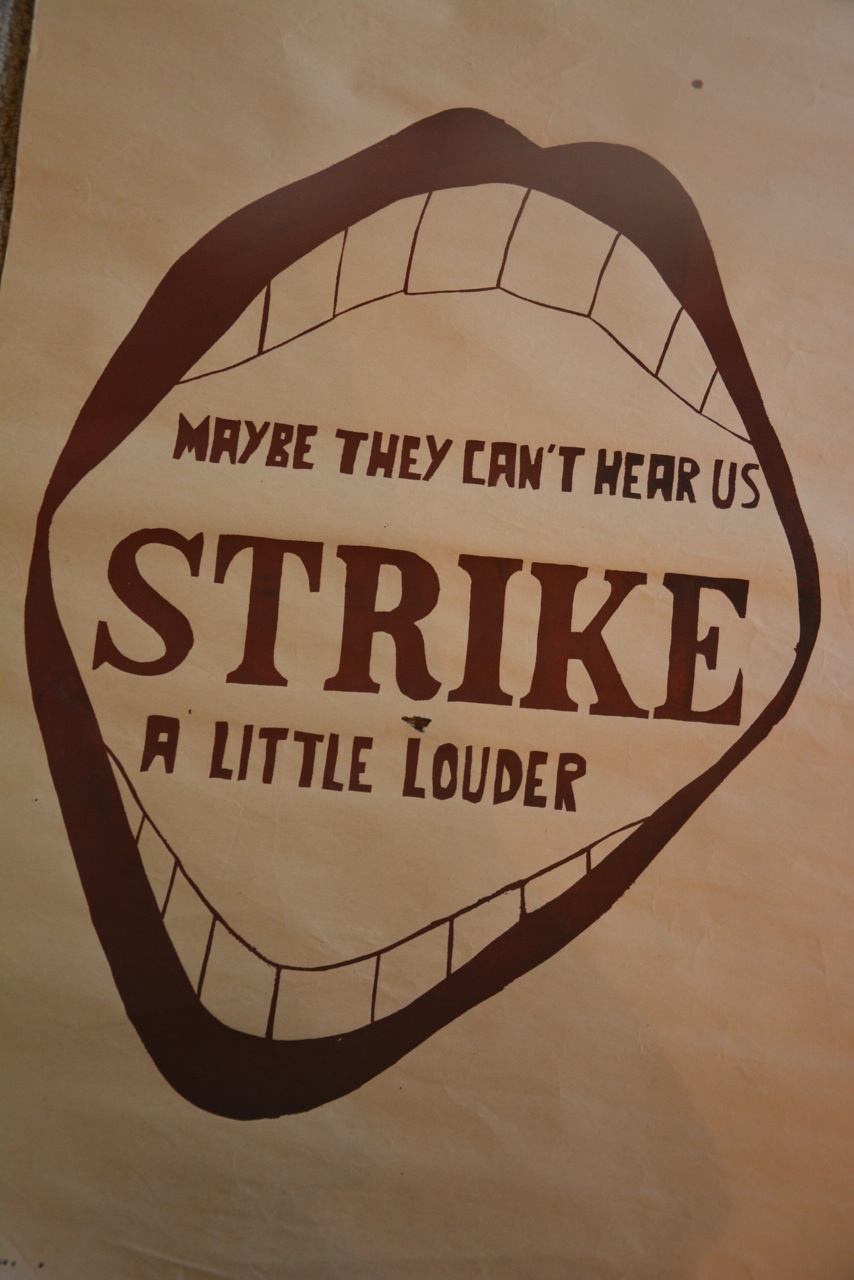
Silkscreening was our version of Tweeting
A CBS Evening News crew was there to document what was happening at Harvard and pointed their cameras at me, just as I was saying we needed to take our grievances to the Harvard Board of Overseers, rather than shut down the whole university. (a “sit-in” / “teach-in” a few days earlier had informed me that one of the board members was a senior executive, possibly the CEO, of Gulf Oil accused of capitalist adventurism agitating race wars in Angola, who knows, that could have been “fake news” back then, just remember, the establishment was the enemy). Later that evening, I was on Walter Cronkite evening news with a speaking part – my aunt and uncle saw me and called my folks to warn them that I might be falling off the deep end as a student activist.
“You Say You Want a Revolution” from the Beatles White album was playing in my head, as I attended a few SDS meetings. Intrigued, stirred up and curious, I was deeply disillusioned when the weathermen faction advocated bombing Pusey’s house. One evening after the strike vote, walking back to Hollworthy from a Lamont Library study session, I encountered another geo-political argument in front of Memorial Church. For me, it was a rare occurrence to navigate across campus without engaging in an argument. (these frequent encounters with passionate students seemed unavoidable and, as an insatiably curious dialogic learner, I was simply trying to discover what I really thought about the whole mess). I was still trying to figure out if we were striking for 6 demands or 8 demands.
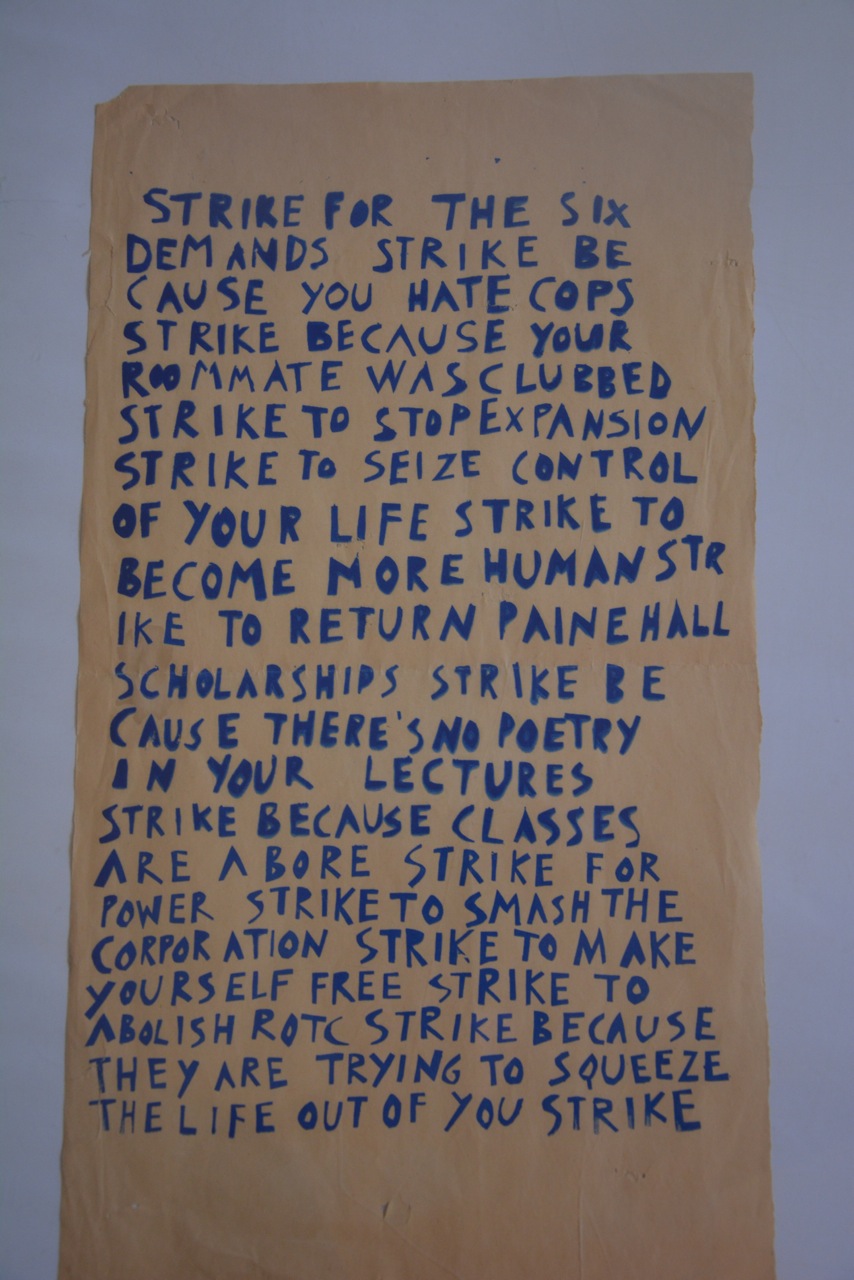
A popular silk screen from the tumultuous era
Each time our small gathering came to a reasonable settlement of the issues, a woman observer kept stirring things up with some profound insight and provocative quip (therefore, I assumed she was a Cliffy grad student). By that time in my freshman year, I had come to expect nothing less of our Radcliffe classmates. During our 25th class reunion, I was reminded by this t-shirt the cliffies certainly didn’t forget how important those days were.
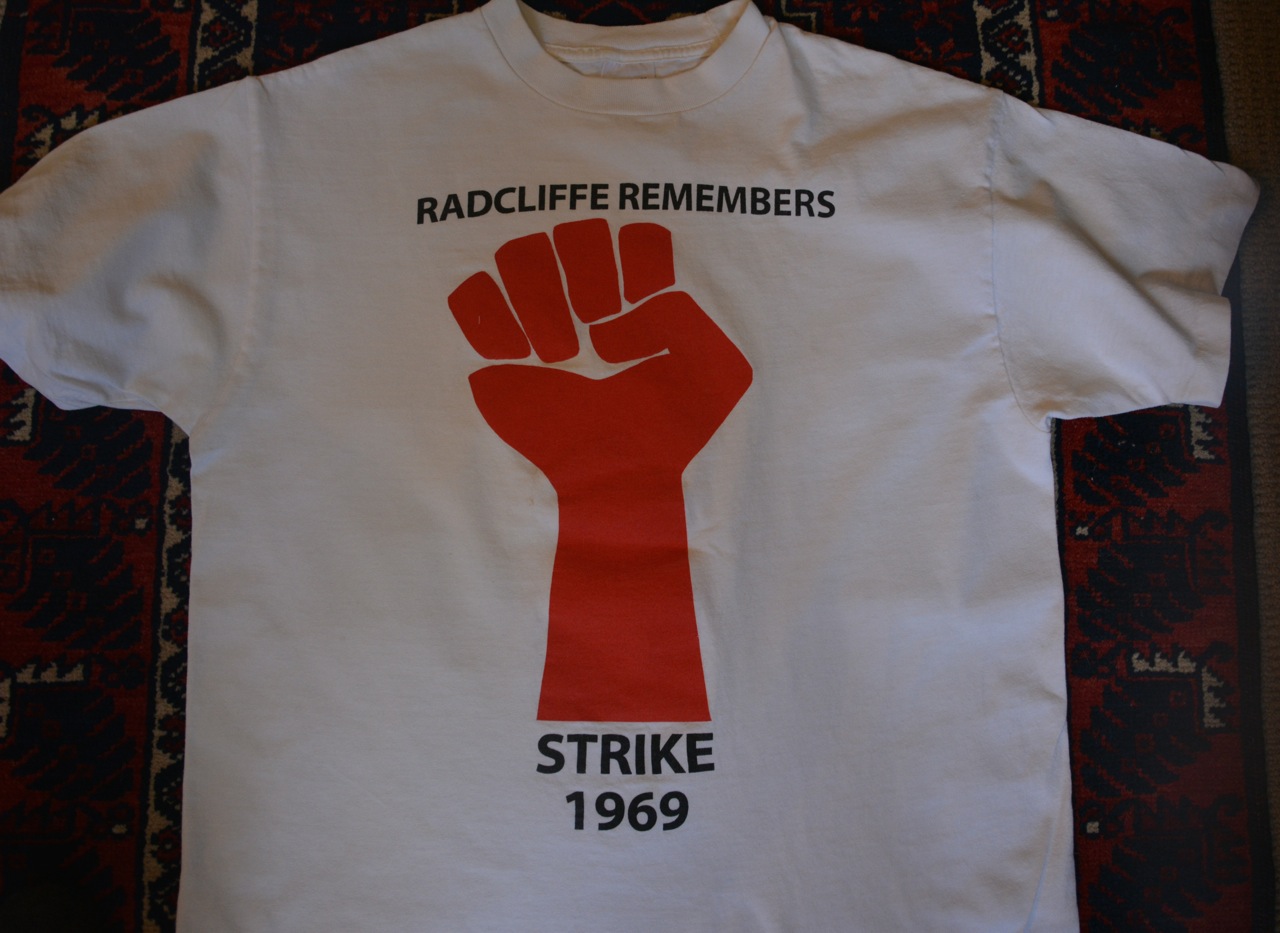
A cherished t-shirt from our 25th class reunion
The argument would start up again and that astute woman would just watch us go at it. After several repetitions, she took me aside, introduced herself as Diane Dumanowski, a producer for Boston’s WGBH Public Broadcasting station. She decided right on the spot that I was going to be cast as one of the student panelists for a 90-minute documentary entitled “The Campus Crisis Game”.
She just asked me to be myself, perhaps the most difficult assignment, since I was still discovering who I thought I was supposed to be and what I was supposed to think. Clearly, she put me in the “moderate” category. The Black Panther leader from Brandeis who might have led the occupation of Ford Hall was one of the panelists as well as the President of YAF (Young Americans for Freedom) at Boston University was another. Given that Barry Goldwater was his idol, the YAF leader probably voted for Trump – back then he advocated putting his members on high-rise buildings in Boston with rifles and instructions to shoot anyone with long hair and bell-bottom blue jeans who misbehaved! No kidding, he was seriously disturbed. There’s more to the story, but I’ve tried your patience long enough… Suzy, can we count on you to keep stirring it up? It seems to me that our current malaise and deteriorating civil discourse could use some serious awakening, if for no other reason than to help us all focus on what’s really important.
I've enjoyed an eclectic journey from being the Director of Conferences and Seminars for Snowmass Resort in Colorado for a decade, to a management position with John Denver's Windstar Foundation, designing international symposia called "Choices for the Future" and also coordinating the first World Nature Quest. I apparently still believe that individuals can make a difference. In spite of all the evidence to the contrary, I remain optimistic about humanity's future. See More on my Web Site.


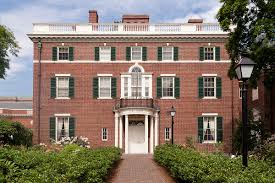

Bud, this is a wonderful story! Great to learn about you as a SoCal football player, then a questioner at SDS meetings, and finally a panelist on a PBS documentary about campus crises. I would love to see that documentary! And what a great touch, embedding a video of the Beatles singing “Revolution”! Thanks for posting. Hope you keep writing for Retrospect.
Hi Suzy, I’d love to see that documentary again too. Alas, the WGBH archives had a devastating fire in the 1980’s and lost all their programming from then. I’ve tried to reach Diane Dumanoski to see if she had a copy, to no avail. However, As you may recall, Andrew Heyward, our classmate, was the President of CBS news during our 25th reunion and I asked him if there was any chance he could find the clip of Walter Cronkite’s evening news… sure enough he assigned an intern to the task of finding it and sent a VHS copy to me. 🙂
What an amazing story of transformation from a highly recruited athlete with Minnesota naiveté to political awakening. I share with you the feeling that, despite the outspoken certainty of movement leaders, many of us were still trying to figure out where we stood on most of these issues. Thanks for sharing this story on Retrospect.
Bud,
I highly recommend for your reading pleasure, Tom Friedman’s “Thank You for Being Late.” He devotes his last 2 chapters to growing up in Minnesota. I suspect you might have experienced the same positive influence that endowed him with a revolutionary spirit and always-questioning mode of living. Thanks for sharing.
Thanks Rick, I’ll check it out. Didn’t realize he was from Minnesota – one core aspect of being from the mid-west seems to be that we just don’t want to be a “bother”… That’s one reason why we hurry across cross walks not to inconvenience anyone or slow them down! 🙂